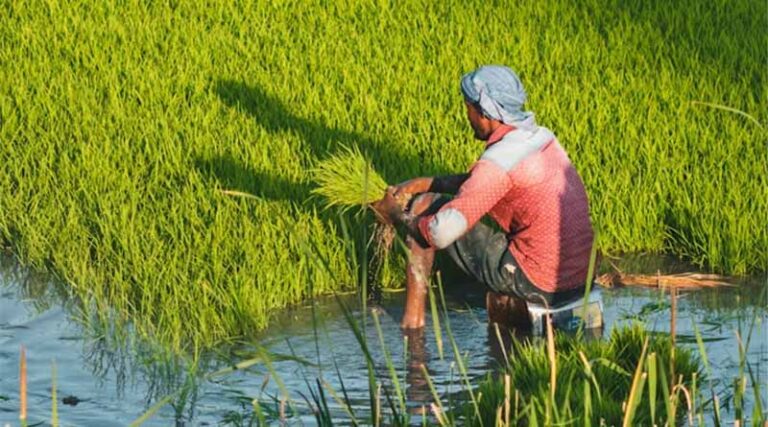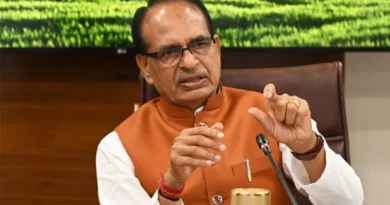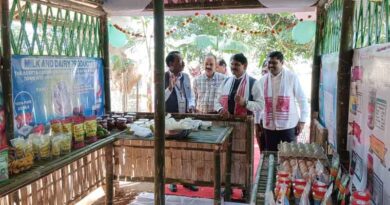
India’s Biostimulant Sector Faces Regulatory Breakdown: BASAI Calls for Urgent Government Action
24 July 2025, New Delhi: The Biological Agri Solutions Industry Association of India (BASAI), representing the country’s biostimulant manufacturers has issued an urgent appeal to the Indian government. The association warns of a deepening regulatory deadlock that is jeopardizing the future of the biostimulant sector—just as India enters the critical Kharif cropping season.

Despite widespread regulatory compliance, stringent data submission, and extensive product validation through 261 university-led field trials, the sector is facing an operational shutdown. The root cause lies in the absence of a regulatory pathway following the expiry of G3 licenses, which granted temporary nationwide sales permissions. With no clarity on permanent approvals or interim relief, companies are left without the legal ability to sell, disproportionately hurting MSMEs and startups.
Regulatory Structure Introduced, Then Left Incomplete
India’s biostimulant market is currently valued at around ₹6,000 crore annually, with over 250 manufacturers, 10,000 formulators, and more than 100 importers supplying solutions across over 100 crops. In 2021, the Government of India introduced biostimulant regulations under the Fertiliser Control Order (FCO), creating a three-step registration process. These included provisional state-level approval (G2), temporary national-level approval (G3), and a permanent registration process (G), which requires detailed dossiers covering efficacy, toxicity, and quality.
Since the introduction of this regulatory framework, more than 38,000 G3 applications were filed. In late 2023, around 1,000 applications for permanent approvals were submitted, each backed by comprehensive university and field-level data. Yet as of July 2025, only 45 products have been approved under Schedule VI of the FCO. There is still no clarity from state governments on how these products will be licensed, no operational infrastructure to conduct testing, and no transparent update on the status of pending applications.
As a result, the market has come to a virtual halt. Companies cannot legally sell products, even if they are scientifically validated. Losses for the ongoing Kharif season alone are estimated at ₹3,500 to ₹4,000 crore. Farmers who rely on these tools are left without access, while industry confidence plummets.
Biostimulants: Climate-Smart Tools Built for Indian Agriculture
Biostimulants are essential inputs in modern sustainable farming, enhancing a plant’s ability to withstand drought, salinity, temperature extremes, and other climate stressors.
Vipin Saini, CEO of BASAI said, “These are not fringe innovations. Biostimulants like humic acids, amino acids, protein hydrolysates, and seaweed extracts have been part of Indian agriculture for over 25–30 years. Farmers themselves have verified their effectiveness under stress conditions like drought and heat. Today, these tools are indispensable for protecting yields and adapting to climate variability.”
“Indian farmers have integrated biostimulants into their cropping systems as reliable tools to protect yields and ensure sustainability in an increasingly unpredictable climate”, he further added.
Also Read: ICAR to Validate Biostimulants Before Sale, Says Union Agriculture Minister Shivraj Singh
Paradox of Success: Indian Innovation Now Locked Out
Ironically, many of the companies facing this crisis are the same startups and SMEs that were earlier supported by public institutions such as NITI Aayog, BIRAC, ICAR, and state agricultural universities. These firms have built globally competitive biostimulants, often with public funding, yet are today excluded from their own domestic market. BASAI reports that some of its members had submitted applications for over 45 formulations in categories such as humic substances, seaweed extracts, amino acids, and combinations thereof. These products had undergone more than 275 university trials, been awarded over a dozen international patents, were the subject of peer-reviewed publications, and had generated 1,500 documented farmer case studies across India.
These are not copycat products or unproven solutions. They are designed and manufactured specifically for Indian crops and agro-climatic conditions, using indigenously developed science and processes aimed at import substitution. The sector is one of the few in Indian agriculture that remains largely in the hands of Indian MSMEs and startups.
Brazil’s Regulatory Model Highlights India’s Missed Opportunity
Globally, the biostimulant sector is growing at a rapid pace. Valued at USD 4.5 billion today, it is expected to reach USD 8.9 billion by 2030, with a CAGR of over 11 percent. Brazil has emerged as a leader in biostimulant adoption and regulation, offering a sharp contrast to India’s current paralysis. More than 550 products are approved in Brazil under a transparent, science-based process that delivers regulatory decisions in 60 to 180 days.
Brazil’s biostimulant market now stands at USD 450–500 million annually. Given its vast agricultural footprint, India could easily exceed this figure. However, without regulatory reform, India is likely to fall behind in both innovation and adoption. As senior members of BASAI, many of whom operate in Brazil, the US, and Europe, point out—Brazil has shown that when policy encourages innovation, the ecosystem quickly shifts toward sustainable practices that benefit farmers and the environment alike.
A Critical Juncture: India Must Choose Leadership or Irrelevance
BASAI warns that India now stands at a crossroads. The biostimulant sector has already attracted over ₹1,200 crore in venture capital and private equity investment over the past five years. Foreign investor interest is growing. But regulatory stagnation is eroding confidence and credibility.
This isn’t merely an industry setback—it is a missed opportunity for national leadership in agri-biotech. If India wants to establish itself as a global hub for biological agri-solutions, it must act decisively.
BASAI’s Recommendations to Restore Sectoral Stability
BASAI is calling for a three-pronged solution. First, immediate interim relief must be granted for all products whose G3 licenses have expired but have completed permanent data submissions. Second, the government must fast-track evaluation of dossiers that are already validated by ICAR and state agricultural universities. And third, a long-term regulatory roadmap is needed—one that includes clear approval pathways such as Section 20A under the FCO for well-defined biostimulant categories and the issuance of general specifications for key active substances like humic acids, amino acids, and seaweed extracts.
Also Read: Verdesian Life Sciences Appoints RK Goyal as Head of Asia Commercial Operations
📢 If You’re in Agriculture, Make Sure the Right People Hear Your Story.
From product launches to strategic announcements, Global Agriculture offers unmatched visibility across international agri-business markets. Connect with us at pr@global-agriculture.com to explore editorial and advertising opportunities that reach the right audience, worldwide.






